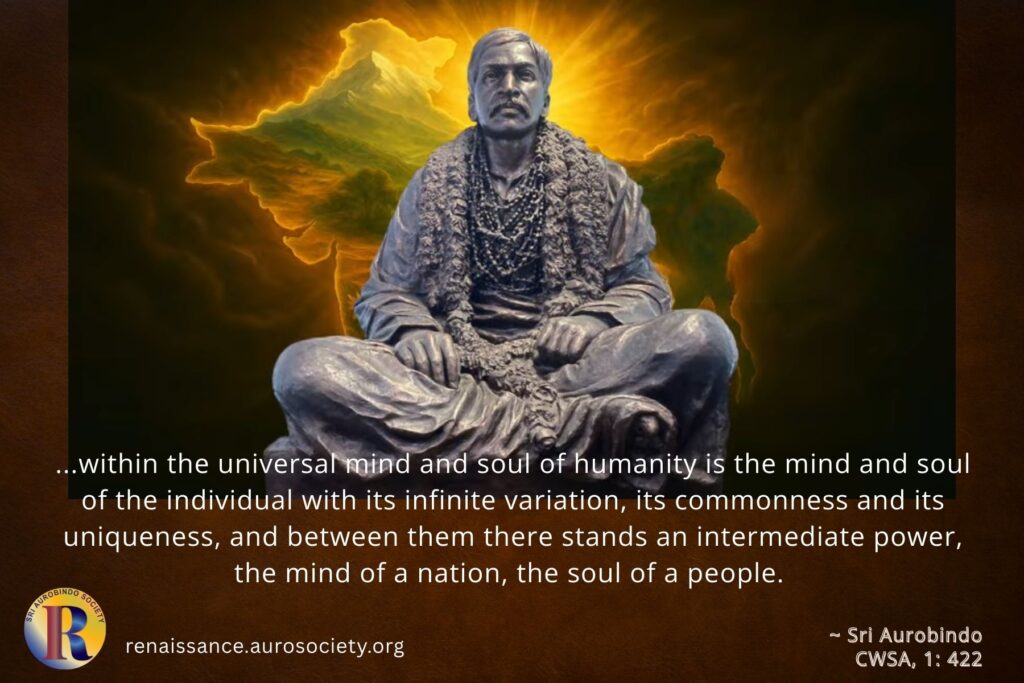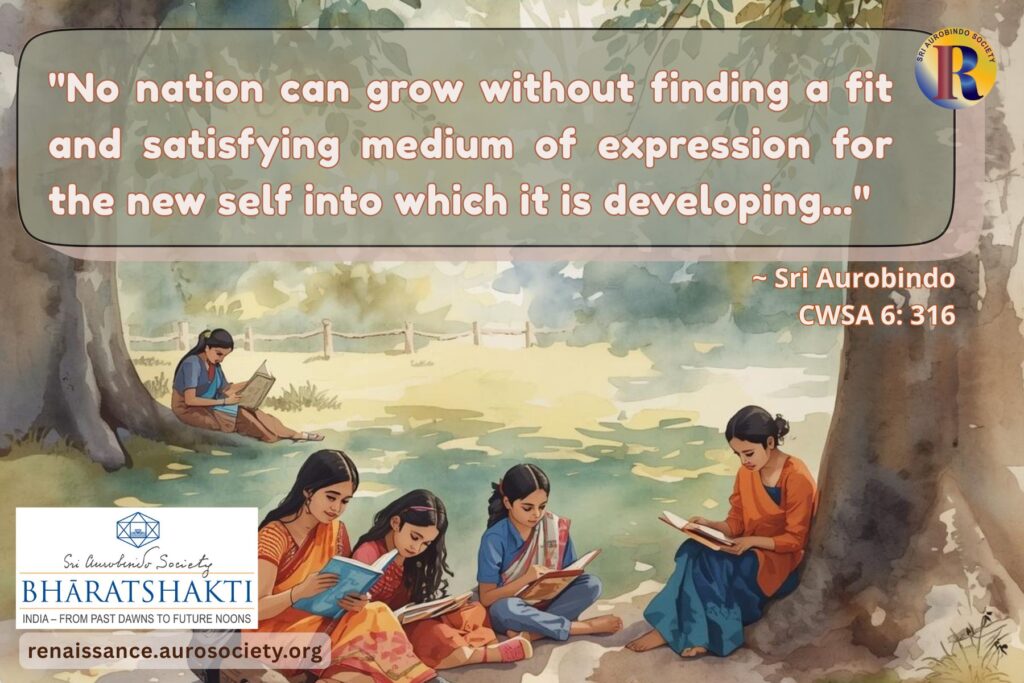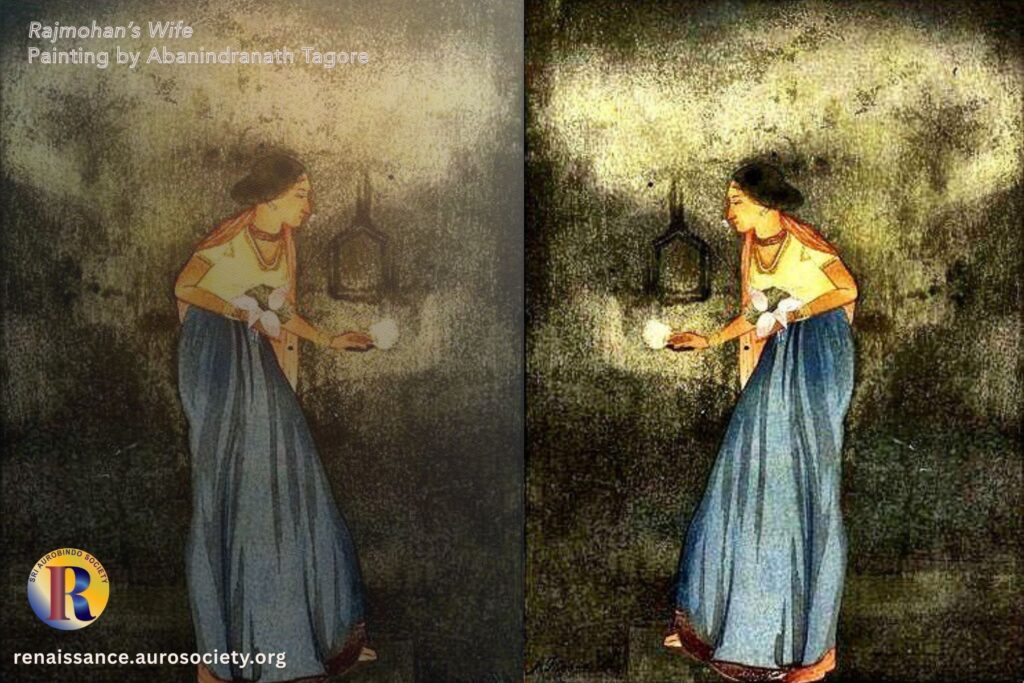Editor’s Note: In these passages, the Mother answers some questions about how one should approach literature, especially if one is an aspirant on the path of integral yoga. She explains that the significance of literature is not to be found in what is said but rather in how it is being said and the feeling it evokes in the reader. While reading high quality literature can help one progress intellectually and develop a good taste and sense of forms, the Mother reminds that the real knowledge comes from above the mind. And to receive it one needs to move beyond reading literature.
🌸🌸🌸
“Literature exists completely in the way of saying things.”
Mother reads ‘The Great Secret: The Writer.‘
Disciple: Sweet Mother, here it is written: “The word is sufficiently immaterial to be in contact with subtle things, forces and vibrations, principles and ideas.”
The Mother: My children, I have to tell you to begin with that this is “literature”. So you should not ask me for explanations. It is a literary way of speaking, you must understand it in a literary way; it is a literary description of the word; it is very precise, but it is literary. So I cannot produce literature on this literature. One must have the taste for forms, for a beautiful way of saying things, a little exceptional, not too banal; but it is just one way, it’s a way of saying things which is charming.
Literature exists completely in the way of saying things. You catch what you can of what’s behind.
If you are indeed open to the literary meaning, it evokes things for you; but it cannot be explained. It is a means of evocation which corresponds also with music. Naturally, one can analyse literature and see how the sentence is constructed, but this is like your changing a human being into a skeleton. It is not pretty, a skeleton. It’s the same thing.
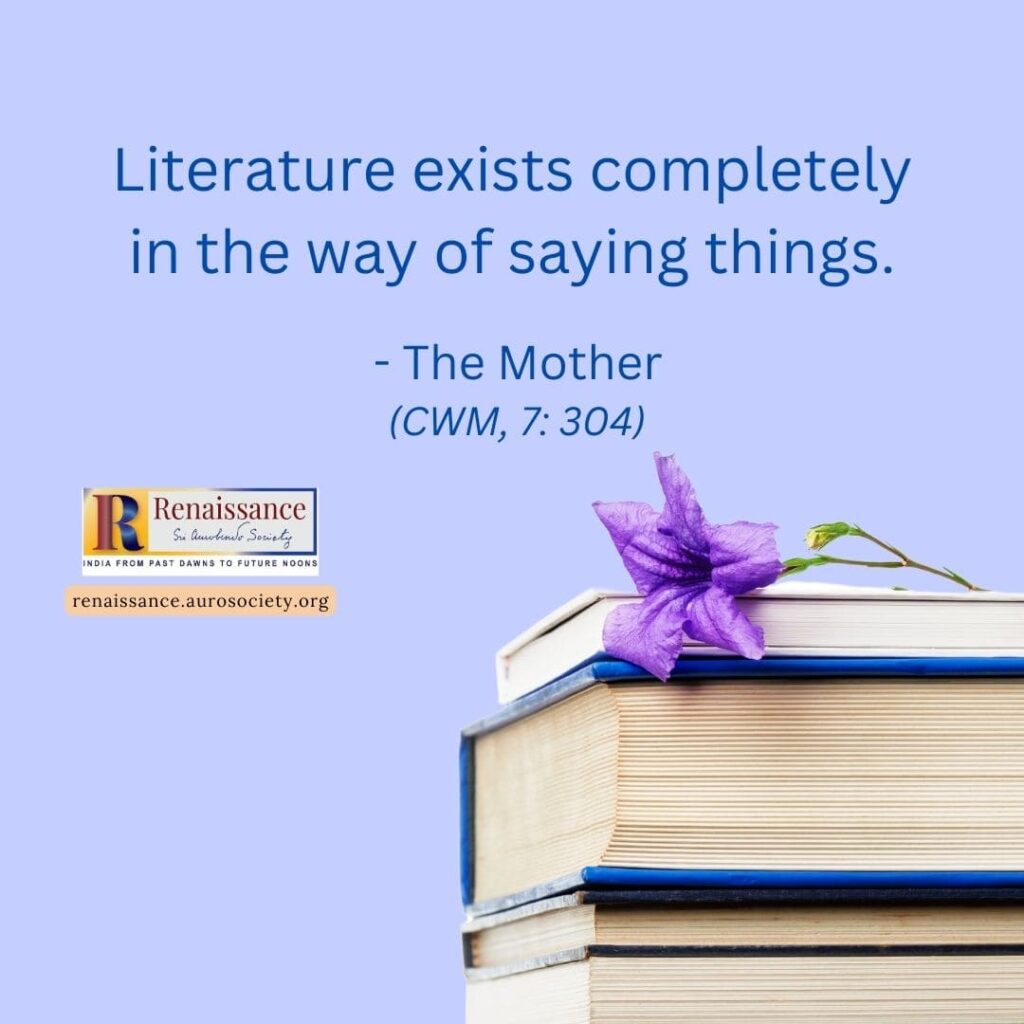
If in music you study counterpoint, and if this note must necessarily bring in this other, and this group of notes has necessarily to bring in that one, you spoil the music too, you make a skeleton of the music; it is not interesting. These things have to be felt with the corresponding senses, the charm of the phrase with the literary sense—catching the harmony of words and what it evokes.
[…]
Disciple: Sweet Mother, how can literature help us to progress?
The Mother: It can help you to become more intelligent, to understand things better, to have a sense of literary forms, to cultivate your taste, to know how to choose between a good and a bad way of saying things, to enrich your spirit. It can help you in a hundred different ways.
There are many different kinds of progress. And if one wants to progress integrally, one must progress in all these different directions. Well, this one is an intellectual and artistic progress at the same time, in which both combine. One plays with ideas, is capable of understanding them, classifying them, organising them, and at the same time one plays with the form of these ideas, the way of expressing them, the way of saying, the way of presenting them and making them intelligible.
Disciple: Sweet Mother, all that we read in literature—stories, novels, etc.—very often contains stuff which lowers our consciousness. It is not altogether possible to leave out the matter and read only from the point of view of the literary value.
The Mother: You see, there is no excuse for reading any odd novels except when they are remarkably written and you want to learn the language—if they are written either in your own language or in another one and you want to study this language, then you may read anything at all provided that it is well written.
It’s not what is said that’s interesting, it’s the way of saying it. And so the way to read it is exactly to be concerned only with the way it has been said, and not with what is said, which is uninteresting.
Also read:
How to Choose Which Books to Read?
Only, for instance, in a book, there are always descriptions; well, you see how these descriptions are made and how the author has chosen the words to express things. And for ideas it is the same thing: how he has made his characters speak; you take no interest in what they say but in how they say it. If you take certain books like study books, to learn just how to write sentences well and express things as you should, because these books are very well written, what the story is has not much importance.
But if you start reading books for what they narrate, then in that case you must be much stricter and not take things which darken your consciousness, because that’s a waste of time; it’s worse than a waste of time.
– The Mother (CWM, Vol. 7, pp. 304-305)
🌸🌸🌸
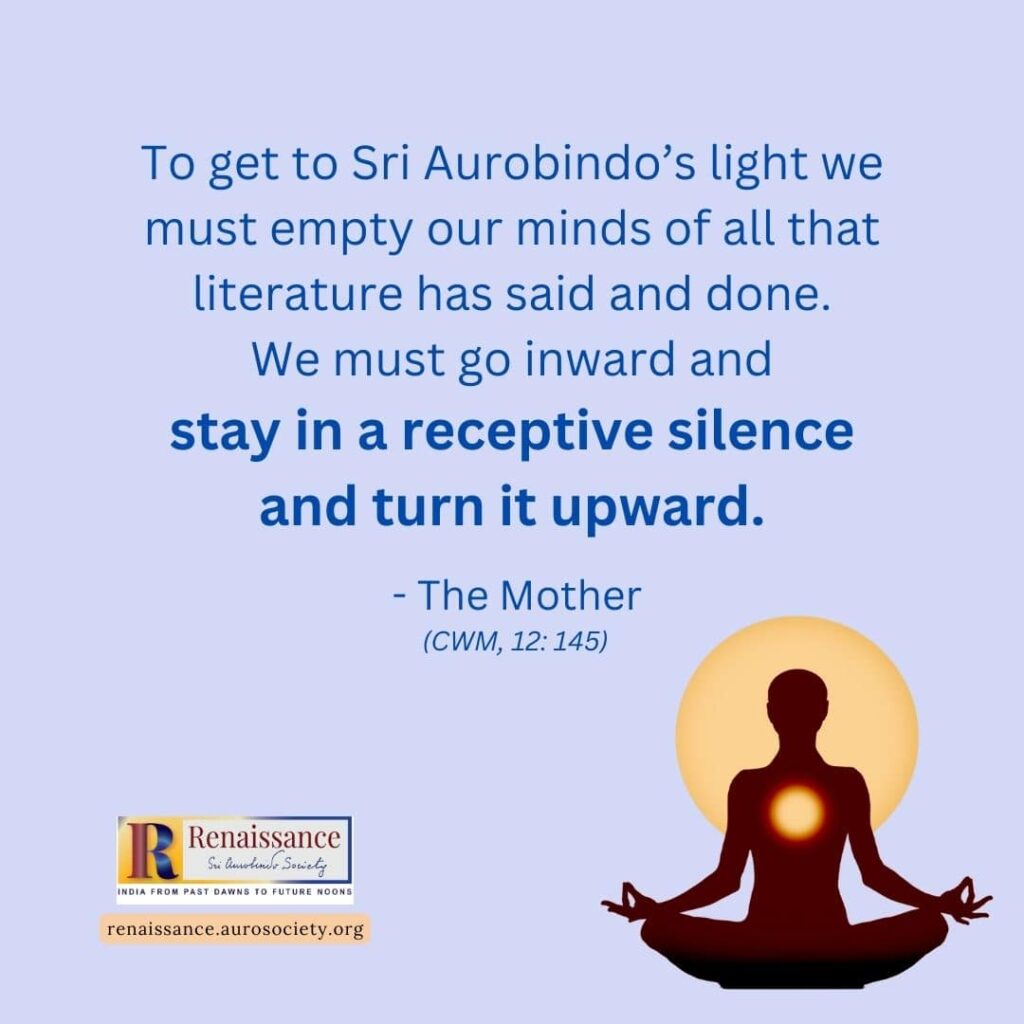
Real Knowledge Cannot be Found in Literature
Disciple: What is the value of literature?
The Mother: It depends on what you want to be or do. If you want to be a littérateur, you must read a lot of literature. Then you will know what has been written and you won’t repeat old things. You have to keep an alert mind and know how to say things in a striking manner.
But if you want real knowledge, you can’t find it in literature.
To me, literature as such is on a pretty low level—it is mostly a work of the creative vital, and the highest it reaches is up to the throat centre, the external expressive mind. This mind puts one in relation with outside things. And, in its activity, literature is all a game of fitting ideas to ideas and words to ideas and words to one another. It can develop a certain skill in the mind, some capacity for discussion, description, amusement and wit.
I haven’t read much of English literature—I have gone through only a few hundred books. But I know French literature very well—I have read a whole library of it. And I can say that it has no great value in terms of Truth.
Real knowledge comes from above the mind.
What literature gives is the play of a lot of common or petty ideas. Only on a rare occasion does some ray from above come in. If you look into thousands and thousands of books, you will find just one small intuition here and there. The rest is nothing.
I can’t say that the reading of literature equips one better to understand Sri Aurobindo. On the contrary, it can be a hindrance. For, the same words are used and the purpose for which they are used is so different from the purpose for which Sri Aurobindo has made use of them, the manner in which they have been put together to express things is so different from Sri Aurobindo’s that these words tend to put one off from the light which Sri Aurobindo wants to convey to us through them.
To get to Sri Aurobindo’s light we must empty our minds of all that literature has said and done.
We must go inward and stay in a receptive silence and turn it upward. Then alone we get something in the right way. At the worst, I have seen that the study of literature makes one silly and perverse enough to sit in judgment on Sri Aurobindo’s English and find fault with his grammar!
But, of course, I am not discouraging the teaching of literature altogether. Many of our children are in a crude state and literature can help to give their minds some shape, some suppleness. They need a good deal of carving in many places. They have to be recharged, made active and agile.
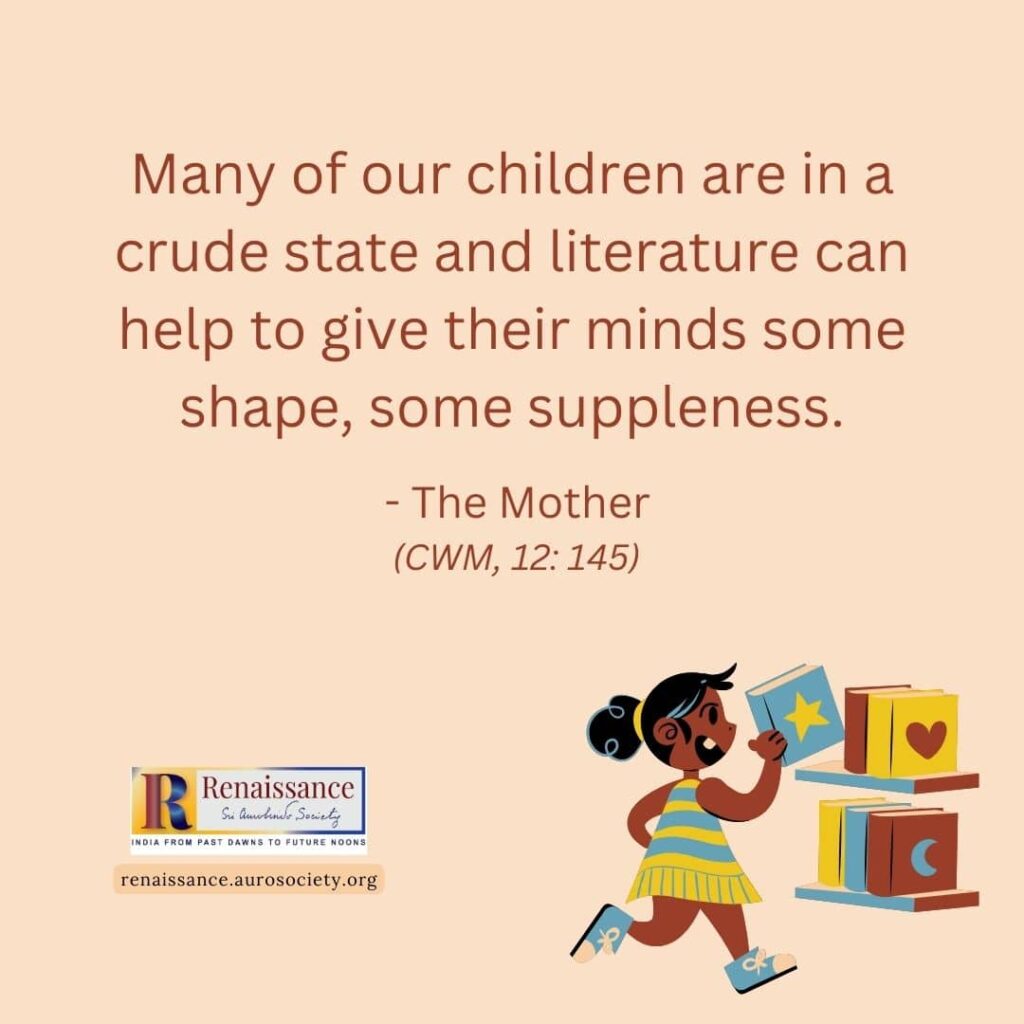
Literature can serve as a sort of gymnastics and stir up and awaken the young intelligence.
I may add that the whole controversy that has gone on among the teachers recently on the value of literature is a storm in a tea-cup. It is really part of a problem which concerns the whole basis of education. All that has been going on in every department of our School is to me one single problem at bottom.
[…]
I do not wish to doubt or ignore the goodwill among the teachers of literature. And there are some old teachers who are sincerely doing their best. I appreciate all this.
– The Mother (CWM, Vol. 12, pp. 144-146)
🌸🌸🌸
Read:
How To Read Sri Aurobindo And Get Answers From Him
~ Design: Raamkumar

